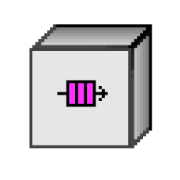DVR or data copy? How to deal with large data in AOP projects
-
Similar Content
-
- 3 replies
- 3,877 views
-
- 14 replies
- 11,989 views
-
- 10 replies
- 8,782 views
-
- 3 replies
- 6,003 views
-
DVR Read and Write Malleable VIs - Simplify Your Block Diagram
By the_mitten,
- design
- malleable vis
- (and 2 more)
- 13 replies
- 10,509 views
-






Recommended Posts
Join the conversation
You can post now and register later. If you have an account, sign in now to post with your account.